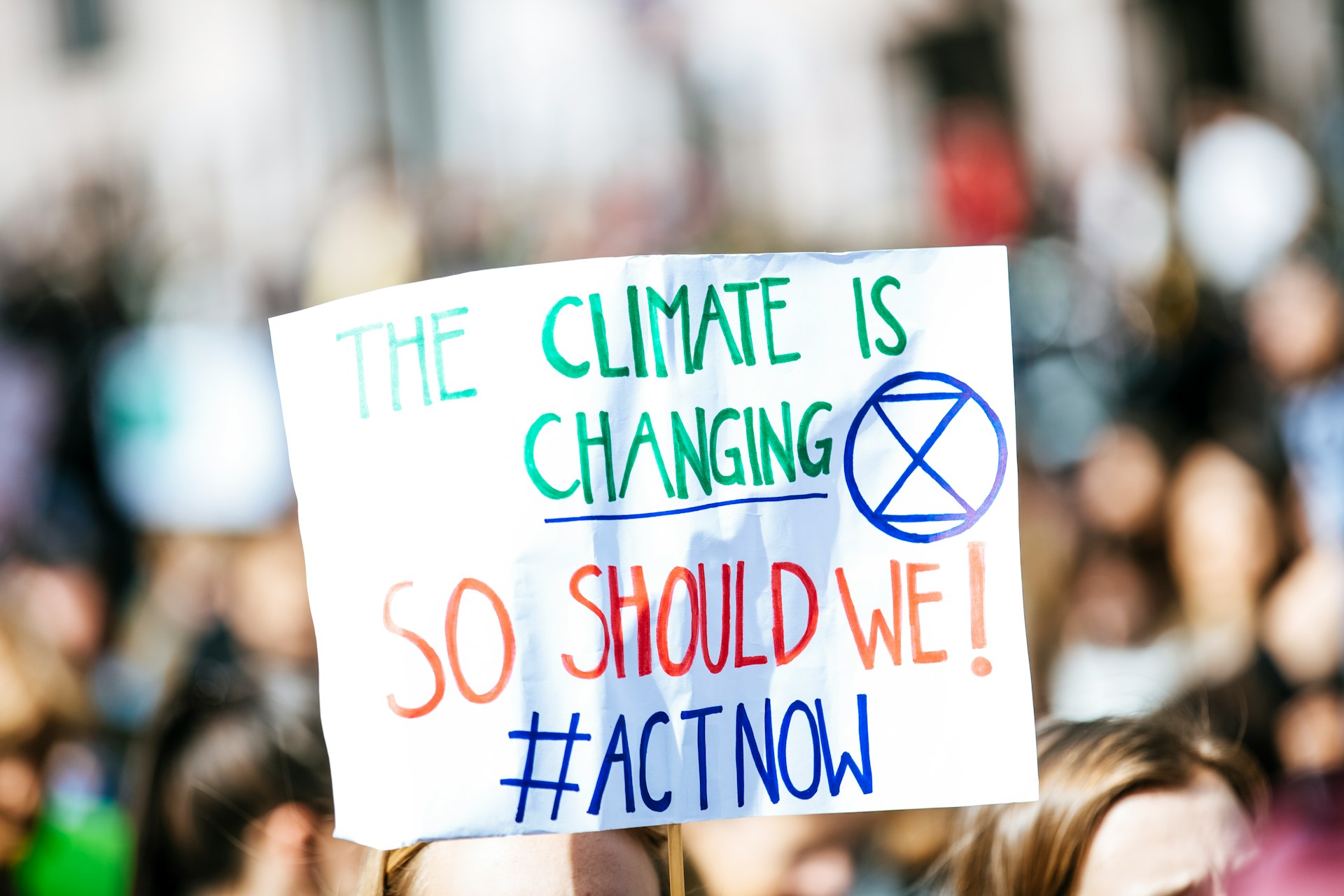OnTheWight always welcomes a Letter to the Editor to share with our readers – unsurprisingly they don’t always reflect the views of this publication. If you have something you’d like to share, get in touch and of course, your considered comments are welcome below.
This from Maggie Nelmes, Ventnor. Ed
For me and many millions of people living on the Island, throughout the country and everywhere in the world, our greatest concerns are to save our planet and all the life that depends on it from catastrophic climate change.
No-one who has experienced storm after storm, with greater frequency than ever before, lasting from autumn to late spring, and the greatly increased severity and impact of those storms, can doubt that climate-wrecking weather weirding is already starting to happen.
Flooding and landslides
Here on the Island, communities have suffered flooding and landslides caused by greater and heavier rainfall. Sea levels are rising, threatening our low-lying coasts.
Most people have children, grandchildren, great-grandchildren who will inherit the world we left them, face the challenges of extreme global heating that successive UK governments have downplayed or ignored for well over fifty years.
Urgent action needed
That is why it is CRUCIAL that our next government take urgent action to transition to a greener future, while we still have time.
Greenpeace and Friends of the Earth have together asked experts to analyse the main political parties’ manifestos, and other major policy announcements, to reveal who is standing up for the future of our planet.
This is how the scores are calculated:
- Criteria – They made a list of the most important things a UK government could do for the climate and nature;
- Sources – Experts read each party’s manifesto and analysed their policies;
- Scoring – Parties scored one point for each policy they are committed to and half a point for a partial commitment.
Here are THE RESULTS, from highest to lowest score:
- Green Party 39/40
- Liberal Democrats 31.5/40
- Labour Party 20.5/40
- Conservative 5/40
And here is the ANALYSIS for each party:
CONSERVATIVE PARTY “Will Drive Us Further into Crisis”
Strengths:
- Will quickly put the Global Ocean Treaty into UK law;
- Will ban new incinerators.
Weaknesses:
- Want to issue more oil and gas licences;
- Not enough action on pollution in rivers and seas;
- Barely any action on cold homes;
- Little investment in public transport;
- No real plan to boost nature protection.
Overall score: 5/40
Greenpeace Analysis: “Will drive us further into crisis”
“The Conservative Party’s manifesto is worrying reading. They’re doubling down on oil and gas when increased dependence on gas will result in higher bills, more energy price shocks and an increase in climate-wrecking emissions.
“It’s great news that they would ratify the Global Ocean Treaty swiftly, but there’s no credible plan to stop sewage in our rivers and seas.
“They’re promising new gas plants and more dependence on the very fossil fuels that caused the cost-of-living crisis. This will only result in higher bills, more energy insecurity, and increase our climate-wrecking emissions.”
GREEN PARTY: “Topping the Ranking with Ambitious Plans”
Strengths:
- Ambitious investment in renewables, warm homes and green transport;
- Plan for a just transition away from polluting industries;
- Proper support for developing countries to deal with growing climate impacts;
- Fair support for a transition to green farming;
- Excellent plans for tackling sewage pollution and protecting nature.
Weaknesses:
- Not clear how they would help the poorest households dealing with high energy bills.
Overall score: 39/40
Greenpeace Analysis: “Topping the Ranking with Ambitious Plans”
“There is no long-term prosperity or security for anyone without tackling the climate and nature crisis, and the Green Party manifesto clearly recognises this.
“The Green Party proposes funding its investments through wealth taxes, taxes on polluting companies and borrowing.
“The super-rich have the broadest shoulders, and they are also responsible for the most climate damage. It is only right that they pay more towards upgrading our homes, infrastructure and public services.”
LABOUR PARTY: “Promising Climate Commitments”
Strengths:
- No new oil and gas licences;
- Rapid renewable energy roll-out;
- Plans for green homes;
- Tackling zero-hours contracts.
Weaknesses:
- Sewage pollution plan doesn’t go far enough;
- Not enough action on industrial fishing;
- Not enough action on plastic pollution;
- No promise to reverse anti-protest laws.
Overall score: 20.5/40
Greenpeace Analysis: “Promising Climate Commitments”
“These include the creation of Great British Energy to boost clean energy projects across the country and lower bills, investment in green homes, and an end to new oil and gas licences.
“Plans to ban zero hours contracts and boost workers’ rights will also help ensure new green jobs are secure and good quality.
“However, their investment in the green transition doesn’t go far enough.
“Repairing our crumbling public services, restoring nature and supporting vulnerable communities facing climate impacts is going to require more government investment.
“Labour’s policies in tackling industrial fishing and plastic pollution also don’t go far enough.”
LIBERAL DEMOCRAT PARTY: “A High Bar on Climate and Nature”
Strengths:
- Excellent plans for stopping sewage pollution in our rivers and seas;
- Tackling private jets and emissions from flying in a fair way;
- Making public transport cheaper;
- More support for developing countries.
Weaknesses:
- May allow new oil and gas licences in the UK;
- Vague plans on international protection.
Overall score: 31.5/40
Greenpeace Analysis: “A high bar on climate and nature”
“The Liberal Democrats have set a high bar on climate and nature, with a fair approach to the transition that shields those struggling with the cost of living, and recognises the UK’s responsibility to support climate-vulnerable countries around the world.
“They show willing to invest in warmer homes, public transport, renewable energy and essential services, with fair tax reforms, even taking on the UK’s private jet-setters and casino bankers where necessary. The super-rich bear a far greater responsibility for the carbon already heating our planet, and together with polluting companies they should pay a much greater share of the costs.
“The lack of courage in tackling the fossil fuel industry’s relentless drive for more gas, more oil and more plastic is a glaring weakness. And more detail on the fiscal side would be welcome.”





